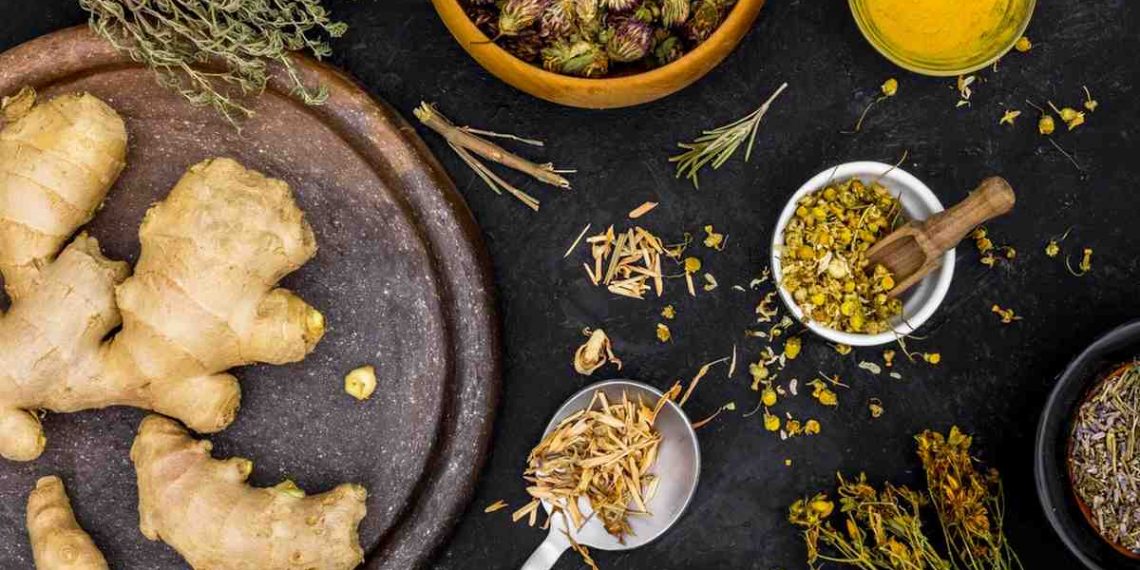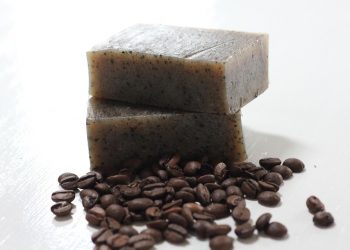Did you know that your gut is often referred to as your “second brain”? It plays a crucial role in everything from digestion to mental health. Yet, many of us overlook how we can nurture our gut health through the foods we eat, particularly herbs. While most think of their culinary uses, many herbs are potent allies for your digestive system. In this article, we’ll explore five incredible herbs, including oregano, that can significantly boost gut health.
1. Oregano
Why Oregano?
Oregano isn’t just for pizza or spaghetti sauce; it’s a powerhouse for gut health. Packed with antioxidants, it contains compounds like carvacrol and thymol that can help stimulate digestive health. Research suggests that these compounds have antimicrobial properties, which can help combat harmful bacteria in the gut.
Benefits for Gut Health
-
Antimicrobial Properties: A study published in the Journal of Medicinal Food (2016) found that oregano oil can inhibit the growth of certain pathogens, like E. coli and Salmonella, which can disrupt gut health (Burt, 2004).
-
Anti-inflammatory: Chronic inflammation can wreak havoc on the gut lining. Oregano’s anti-inflammatory properties may help mitigate this.
-
Supports Healthy Digestion: Oregano can help in the secretion of digestive juices, enhancing the overall digestive process.
How to Use Oregano
- In Cooking: Add fresh oregano to salads or marinades, or use dried oregano in various dishes.
- Oregano Oil: This can be used as a supplement, but always consult a healthcare provider before starting any new supplement.
Cautions
While oregano is generally safe for most, high doses of oregano oil can lead to digestive upset. It’s always wise to start small.
2. Ginger
The Wonder Root
Ginger is more than just a remedy for nausea; it’s also a fantastic herb for gut health. Its active compound, gingerol, has anti-inflammatory and antioxidant effects.
Benefits for Gut Health
-
Aids Digestion: Ginger has been shown to speed up the emptying of the stomach, which can be beneficial for those with digestive issues (Nishimura et al., 2015).
-
Reduces Nausea: Studies have proven ginger’s effectiveness in reducing nausea, making it great for those with digestive distress.
-
May Help with Gastrointestinal Disorders: Research indicates that ginger may help alleviate symptoms of gastrointestinal disorders such as irritable bowel syndrome (IBS).
How to Use Ginger
- Tea: Fresh ginger tea can be soothing and helpful for digestion.
- Cooking: Add grated ginger to stir-fries, soups, or smoothies.
Cautions
High doses of ginger may lead to heartburn or digestive upset in some individuals. Moderation is key!
3. Peppermint
The Refreshing Herb
Peppermint is not just a refreshing flavor; it’s also beneficial for gut health. It’s known for its soothing effects on the digestive system.
Benefits for Gut Health
-
Alleviates IBS Symptoms: Several studies suggest that peppermint oil can help relieve symptoms of IBS, including bloating and gas (Mazzacca et al., 2017).
-
Muscle Relaxation: Peppermint has antispasmodic properties that can help relax the muscles of the gastrointestinal tract.
-
Promotes Digestive Health: Its menthol content can stimulate bile flow, aiding in fat digestion.
How to Use Peppermint
- Tea: Sip on peppermint tea after meals for a soothing effect.
- Oil: Peppermint oil capsules can also be effective, but consult a healthcare professional before taking them.
Cautions
Some people may experience heartburn from peppermint, particularly if they have GERD. Always listen to your body.
4. Turmeric
The Golden Spice
Turmeric, famous for its vibrant color and flavor, is a superstar in the world of anti-inflammatory foods. Its active compound, curcumin, offers a wealth of benefits for gut health.
Benefits for Gut Health
-
Anti-inflammatory: Curcumin is known for its strong anti-inflammatory properties, which may help reduce inflammation in the gut (Hewlings & Kalman, 2017).
-
Supports Gut Microbiome: Some studies show that curcumin can positively influence the gut microbiota, promoting a healthier balance of bacteria.
-
Improves Digestion: Turmeric can help stimulate bile production, which is essential for fat digestion.
How to Use Turmeric
- Golden Milk: This creamy drink combines turmeric with milk (or a milk alternative) and spices.
- Cooking: Use turmeric in curries, soups, or rice dishes.
Cautions
High doses of turmeric may lead to digestive upset for some individuals. If you’re on blood thinners or have gallbladder issues, consult your doctor before adding it to your diet.
5. Fennel
The Crunchy Herb
Fennel isn’t just a crunchy vegetable; its seeds and fronds have numerous health benefits, especially for digestion.
Benefits for Gut Health
-
Reduces Bloating and Gas: Fennel has carminative properties, which means it helps to relieve gas and bloating (Hossain et al., 2015).
-
Digestive Aid: Fennel can help stimulate digestion and relieve constipation.
-
Antimicrobial: Fennel extracts have shown antimicrobial effects that may be beneficial for gut health.
How to Use Fennel
- Raw: Enjoy raw fennel in salads or as a crunchy snack.
- Tea: Fennel seed tea is soothing for digestive issues.
Cautions
While fennel is generally safe, some individuals may experience allergic reactions or gastrointestinal discomfort.
FAQs
1. Can I take these herbs every day?
Yes, most of these herbs can be safely consumed daily in moderate amounts. However, it’s always best to consult with a healthcare provider if you plan to take them as supplements.
2. Are there any side effects?
While they are generally safe, some individuals may experience digestive upset or allergic reactions to certain herbs. Always start with small amounts and monitor how your body responds.
3. How can I incorporate these herbs into my diet?
You can add them to meals, teas, or smoothies. They’re versatile and can enhance the flavor of many dishes while providing health benefits.
4. Can these herbs replace medication for gut issues?
No, they should not replace prescribed medications. While they can complement your health regimen, always consult with a healthcare provider for any gut health concerns.
Conclusion
Herbs like oregano, ginger, peppermint, turmeric, and fennel can be valuable allies in your quest for optimal gut health. They offer not only flavor but also powerful medicinal benefits that can improve digestion and promote a healthy gut microbiome. Remember, though, that everyone’s body is different. It’s essential to listen to your body and consult with a healthcare professional before making significant changes to your diet.
In today’s fast-paced world, caring for your gut is more important than ever. So, why not give these herbs a try? Your gut (and taste buds) will thank you!
Disclaimer: This article is for educational purposes only and is not a substitute for professional medical advice. Always consult a qualified healthcare provider before making changes to your health routine.
References
-
Burt, S. (2004). Essential oils: Their antibacterial properties and potential applications in foods—a review. International Journal of Food Microbiology, 94(3), 223-253. https://doi.org/10.1016/j.ijfoodmicro.2004.03.022
-
Hewlings, S. J., & Kalman, D. S. (2017). Curcumin: A review of its effects on human health. Foods, 6(10), 92. https://doi.org/10.3390/foods6100092
-
Hossain, C. F., & Saha, S. K. (2015). Evaluation of the therapeutic efficacy of fennel (Foeniculum vulgare) seed extract on gastrointestinal disorders. Journal of Pharmacognosy and Phytochemistry, 4(4), 24-29. https://www.phytojournal.com/archives/2015/vol4issue4/PartB/4-4-16
-
Mazzacca, G., et al. (2017). The role of peppermint oil in the treatment of irritable bowel syndrome: A review. Journal of Gastroenterology and Hepatology, 32(2), 495-501. https://doi.org/10.1111/jgh.13705
-
Nishimura, N., et al. (2015). Effect of ginger on gastric emptying in healthy subjects: A pilot study. Journal of Gastroenterology and Hepatology, 30(1), 188-192. https://doi.org/10.1111/jgh.12822
Get Your FREE Natural Health Guide!
Subscribe now and receive our exclusive ebook packed with natural health tips, practical wellness advice, and easy lifestyle changes — delivered straight to your inbox.
















